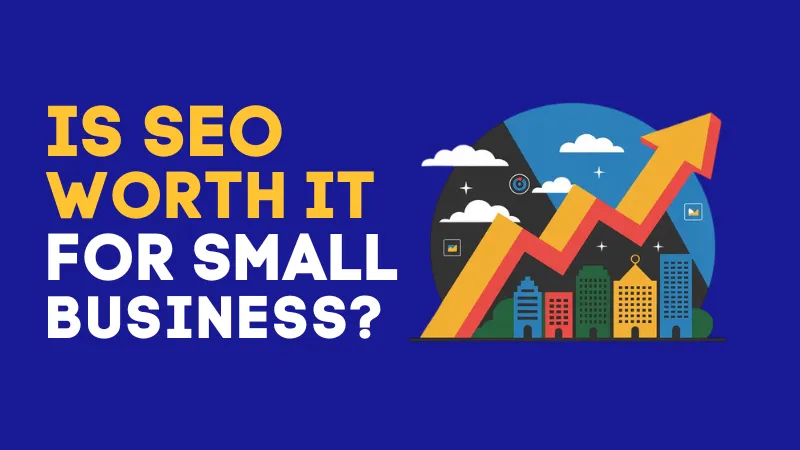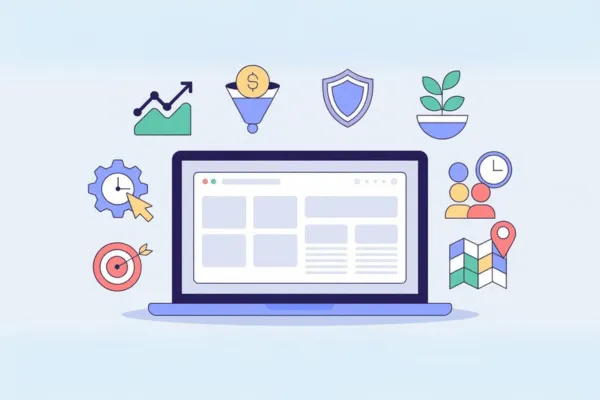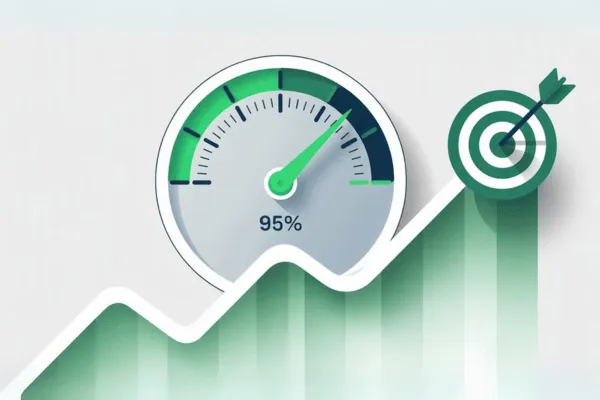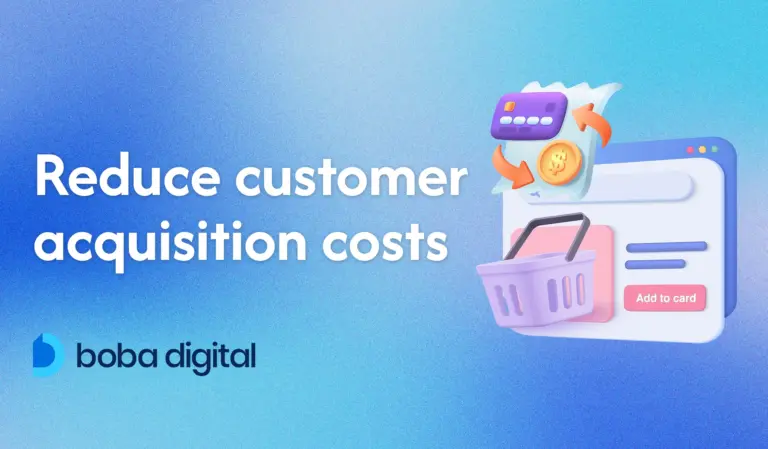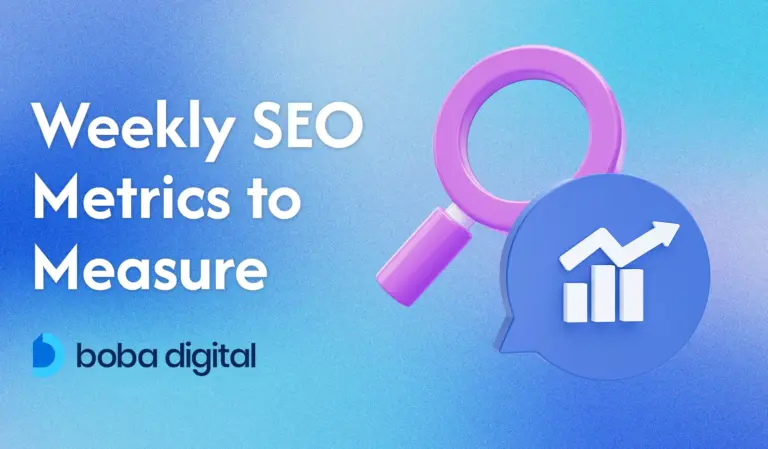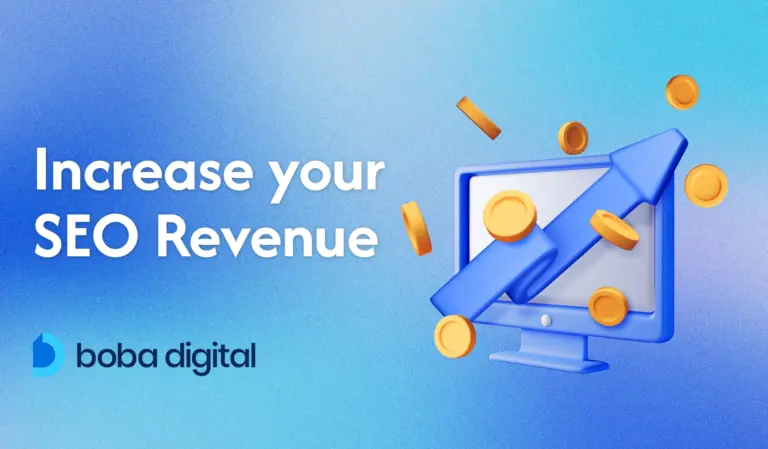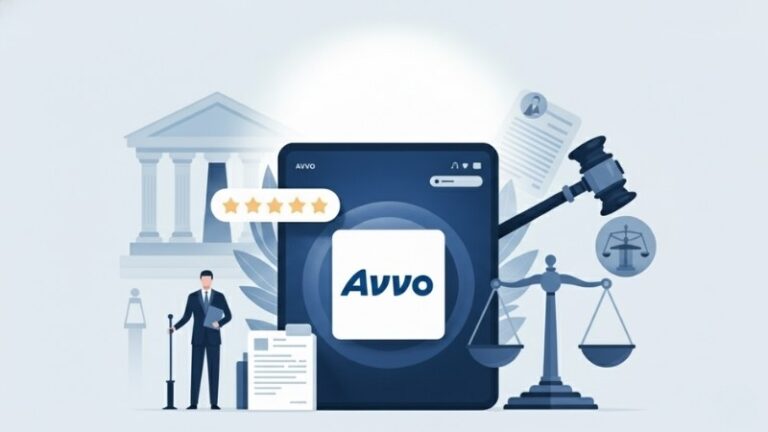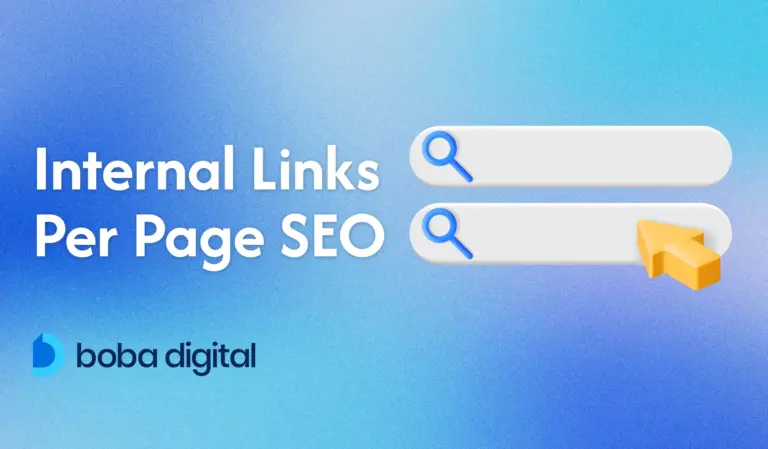Is SEO Worth It for Small Business? The ROI Truth Revealed
If you’re running a small business in 2025, there’s a good chance you’ve heard the buzz around SEO. Maybe it sounds technical, maybe even expensive. But here’s the truth—it’s no longer just for big brands with deep pockets.
Search Engine Optimization is how savvy small businesses show up where it matters most: right in front of people actively searching for what they offer. Think of it as your digital storefront sign, except it’s working 24/7 across Google, Maps, and more.
Skipping SEO? That’s like turning the lights off and expecting people to find you anyway.
So, is SEO worth it for small businesses like yours? Let’s just say you might want to stick around for the answer.
Is SEO Worth It for Small Business?
For small business owners juggling inventory, customer service, and late-night admin work, SEO can seem like one more thing on an endless to-do list. But here’s the thing—ignoring SEO means missing out on people already looking for what you offer.
When someone types a question or product into Google, Search Engine Optimization helps your business show up in those search results. That visibility can translate into real customers without the ongoing expense of paid ads.
The value of SEO goes beyond rankings. It helps you attract local customers, build trust with search engines, and appear consistently in front of people who are actively searching for businesses like yours.
Unlike social media ads that disappear when your budget runs dry, SEO efforts compound over time. That means more organic traffic and better brand recognition month after month.
Yes, SEO takes time. Yes, it can cost money. But so does every marketing strategy that actually works. Consider a local bakery that invests in optimizing their Google Business Profile and building local backlinks. Over time, they see a steady rise in foot traffic and online orders—all from search traffic they didn’t have to keep paying for.
Search engines reward consistent effort, not one-time fixes.
That’s why a long-term SEO strategy often outperforms short bursts of paid advertising. While Google Ads may bring traffic quickly, SEO builds a foundation that continues to grow your presence long after the campaign ends.
The Unique Challenges Small Businesses Face
Limited budgets and resources
Getting your business to show up in search results sounds great until you start looking at the cost.
For many small business owners, the idea of setting aside a monthly budget for SEO feels like choosing between rent and marketing. That’s not an exaggeration, it’s the reality when you’re working with tight margins and wearing half a dozen hats.
Unlike large companies with dedicated marketing teams, small businesses often have to make do with limited manpower. There’s rarely someone on staff solely focused on Search Engine Optimization.
Tasks like keyword research, link building, or publishing high quality content end up squeezed between customer calls and supply runs. This is where many businesses fall short—not because they don’t care, but because they simply don’t have the bandwidth.
Most SEO budgets for small businesses range between $500 to $2,500 a month. While that might sound steep, especially when you’re trying to keep the lights on, many local SEO services offer flexible plans starting at around $300.
These entry-level options can still make a noticeable difference if you’re targeting the right keywords and using consistent tactics.
When you’re strapped for resources, every dollar you spend has to work harder. That’s why it’s so important to choose a digital marketing strategy that doesn’t just bring traffic but brings the right kind of traffic.
With SEO, it’s possible to compete smarter, not louder.
Competing with Larger Brands
It’s easy to feel outmatched when your small business is up against companies that seem to dominate every corner of the internet. They’ve got entire teams churning out blog posts, building backlinks, and pushing content across every platform while you’re squeezing in SEO research between client calls.
But being smaller doesn’t mean being invisible. It means playing the game differently.
Large brands often focus on broad keywords and national audiences, leaving room for smaller businesses to win in niche areas. That’s where strategic local SEO makes all the difference.
Instead of trying to outrank a national retailer for “best running shoes,” a local shop can target search queries like “running shoes in Charleston” or “custom shoe fittings near me.” These kinds of long-tail keywords connect you with people looking for exactly what you offer, right in your backyard.
What you may lack in budget, you make up for in local knowledge, personal service, and community presence. Leveraging tools like Google Business Profile, maintaining accurate business listings, and gathering customer reviews can help you show up in Google Maps and local search results even when big names are crowding the rest of the page.
The key isn’t trying to outspend them. It’s being more specific, more personal, and more relevant to the people you actually want to serve. That’s a battle small businesses can absolutely win.
Time Constraints and Expertise Gaps
If you’ve ever answered emails while restocking shelves and mentally calculating your next inventory order, you’re not alone. Small business owners are known for doing it all but that doesn’t mean there’s time left for learning how search engines identify relevant keywords or mastering technical SEO.
SEO isn’t just about throwing a few keywords on a page. It involves regular content updates, link building, on-page optimization, and keeping up with ever-changing algorithms.
And let’s face it—between managing your team, serving customers, and keeping the business running, there’s rarely a quiet moment to dive into search console data or keyword research tools.
That’s why many small business owners find themselves stuck between two options: attempt a DIY approach that’s time-consuming and potentially full of trial-and-error, or bring in an SEO provider to do the heavy lifting.
While outsourcing can be an investment, it often pays off by avoiding mistakes that slow growth or hurt your search engine rankings.
Still, even if you’re not ready to outsource everything, small steps can help. Block out time weekly for SEO tasks, automate parts of your marketing strategy, or delegate where possible.
You don’t need to master every SEO tool but making it a consistent part of your routine will move the needle over time.
Key Benefits of SEO for Small Businesses
Increased Website Traffic and Visibility
Every day, people search online with a purpose, whether it’s to book an appointment, find a nearby shop, or get an answer fast. If your business isn’t showing up in those moments, someone else is taking the lead.
SEO helps you claim that space in a way that feels natural to your audience and valuable to search engines.
Ranking on the first page of Google isn’t about bragging rights—it’s about being part of the conversation when your services are needed. With 75% of users clicking a result from that first page, SEO becomes less of a nice-to-have and more of a direct line to potential customers.
Good SEO doesn’t just bring more clicks. It brings the right clicks, people who are already looking for what you offer. That’s the kind of visibility that builds momentum over time and keeps your business in front of the people who matter.
Cost-Effective Lead Generation Compared to Paid Ads
When your marketing budget feels more like a pocket change jar than a corporate vault, every dollar has to prove its worth. That’s where SEO becomes less of a strategy and more of a survival skill for small businesses trying to stretch their marketing dollars without sacrificing results.
Paid advertising might bring a quick burst of traffic, but that traffic stops the moment your ad spend does.
SEO, on the other hand, is a long-game investment. With time and consistency, it drives steady, qualified traffic to your site without the constant need to refill your budget. You’re building visibility that lasts, not just renting attention.
More importantly, the people who land on your site through organic search aren’t being interrupted—they’re actively looking. That kind of intent makes them far more likely to trust what they find and take action.
And when your content matches their needs, conversions happen naturally, without the pushiness of paid campaigns.
Over time, this approach lowers your customer acquisition costs and gives you more breathing room to reinvest in growth. It’s smart marketing that pays off without draining your budget month after month.
Building Strong Brand Identity and Credibility
You don’t need a national billboard campaign to earn trust—sometimes, all it takes is showing up when it counts. When your business appears in top search results, it sends a quiet but powerful message: this brand knows what it’s doing.
In the eyes of your audience, visibility equals legitimacy.
If Google consistently places your business on the first page, users are more likely to view you as reliable, experienced, and worth their time. This trust isn’t built overnight, but SEO helps you get there by aligning your content with what your audience is already searching for.
Search engines reward consistency, accuracy, and relevance. By optimizing your content, sharing expertise, and targeting keywords relevant to your niche, you’re not just improving rankings, you’re building a brand people recognize and respect.
Over time, that visibility leads to authority, and that authority leads to loyalty.
Whether you’re a local service provider or a niche product seller, a well-executed SEO strategy turns your website into a resource customers come back to—not just once, but often.
Sustainable Long-Term Growth
Quick wins are great, but what happens when the campaign ends and the buzz fades?
That’s the catch with most short-term marketing efforts that they come with an expiration date. Whether it’s a paid ad, a mailer, or a short-term social push, the traffic tends to dip the moment the spend stops.
Whereas SEO plays a very different game. It might take a little time to gain traction, but once your content starts ranking and your site builds authority, the results keep coming. Each blog post, each page optimization, each link you earn adds to your digital momentum.
Think of it like planting a garden. You won’t harvest in a week, but give it time and care, and you’ll build something that continues to feed your business for years. The organic traffic SEO brings doesn’t rely on a daily ad spend. It builds naturally and sustains itself with regular updates and ongoing optimization.
This is how small businesses can grow steadily without chasing every trend or buying visibility.
With SEO, you’re creating a system that continues working in the background, bringing in traffic, leads, and customers long after the initial effort.
Improved User Experience and Site Usability
Ever clicked on a website, waited… and then clicked right back out? So have your customers. That moment—those few seconds of frustration—can cost a business more than just a bounce. It’s often the difference between gaining a lead and losing one for good.
At its core, SEO isn’t just about pleasing algorithms. It’s about making your site genuinely helpful and easy to use.
From faster page loads to mobile-friendly layouts and clean navigation, the technical side of SEO is deeply tied to how real people interact with your content.
When your website feels smooth to use, users stay longer, explore more, and are far more likely to convert into paying customers. These positive behaviors send strong signals to search engines, which often reward user-focused sites with better visibility in search results.
Put simply, a great user experience can never be optional as it’s the foundation of both SEO success and customer trust. If your site doesn’t work for people, it won’t work for search engines either.
Higher Conversion Rates from Qualified Leads
Someone clicking your site from a Google search isn’t just wandering—they’re on a mission. They’ve typed in exactly what they need, and if your site shows up, it means you’re already part of the answer.
That’s the edge SEO gives you. It doesn’t chase people down. It lets the right people come to you, people who are actively looking for your product, your service, or your expertise.
And when someone finds you through search, they’re far more likely to take action, whether that’s booking, buying, or reaching out.
Compared to cold emails, random ads, or outbound pitches that interrupt someone’s day, organic traffic feels more natural. It meets your audience on their terms, which is why the leads are often stronger and the chances of turning them into paying customers are much higher.
With SEO, you’re not pushing; you’re pulling in the people who already care.
Gaining a Competitive Edge in Local Markets
Imagine this: someone a mile away is looking for the exact service you offer. They pull out their phone, type in a quick search, and choose one of the top results. If you’re not there, you’re not even in the running.
That’s the daily reality for small businesses in 2025. With over 20% of Americans searching online for local businesses every single day and even more doing it several times a week. Local visibility isn’t a bonus, it’s a must.
This is where local SEO gives you the upper hand. When you fine-tune your Google Business Profile, target neighborhood-specific keywords, and collect real customer reviews, you move into the spotlight for local searchers who are ready to act. These aren’t passive browsers—they’re potential customers with a specific need and a short decision window.
For businesses serving a specific zip code or city, that edge matters. It helps you compete head-to-head with larger brands by owning your territory online, one local search at a time.
How SEO Drives Business Results?
You don’t invest in SEO just to see your site move up a few spots on Google—you do it because better rankings drive real outcomes. And those outcomes go far beyond clicks.
When someone types a high-intent search like “roof repair open now” or “bookkeeping service in Austin,” they’re not browsing for fun. They’re looking to act. If your business shows up near the top, that visibility can turn into a phone call, a form submission, or even a direct purchase.
This is how SEO quietly fuels the engine of sales, even while you’re focused on other parts of the business.
It also builds familiarity over time. The more often people see your business in their search results, the more they start to recognize and trust your brand. That recognition plays a huge role in turning one-time visitors into loyal customers who come back and refer others.
And it doesn’t stop there. By regularly optimizing your site for relevant keywords, improving your content, and refining technical performance, SEO becomes a tool for long-term growth.
More web traffic, more qualified leads, and higher customer engagement—all without having to constantly pay for every visit. That’s the kind of return small businesses can’t afford to overlook.
The Investment: Cost, Time, and Expectations
Ask most small business owners what they want from marketing, and the answer is simple: results. Fast ones. But SEO doesn’t work on a timer and it definitely doesn’t deliver overnight miracles. That’s not a flaw, it’s the nature of the process.
A well-structured SEO strategy takes time to build momentum. You’re looking at a window of 3 to 6 months before real traction shows up in the form of better rankings, more web traffic, and qualified leads.
It’s a gradual climb, not a shortcut. And that’s why setting realistic expectations upfront matters just as much as the work itself.
Now, let’s talk numbers. Most small businesses spend between $500 and $2,500 per month on SEO retainers. More robust local SEO campaigns—especially for competitive markets—can push into the $3,000 to $5,000 range.
Some SEO providers also offer hourly consulting, typically priced between $100 and $300 an hour, depending on their experience and scope.
Here’s the catch: beware of any agency promising “guaranteed” rankings or instant traffic spikes. Google doesn’t hand out guarantees, and any tactic that tries to outsmart its algorithm is likely to do more harm than good.
A reputable SEO provider will focus on consistent improvement, sustainable tactics, and clear communication, not shortcuts. Like any smart investment, SEO pays off over time. The more strategic your approach, the more reliable and compounding your returns.
How to Get Started with SEO as a Small Business?
So, you’ve decided SEO is worth it but where do you begin when you’re already wearing ten hats and Googling “how to SEO” at midnight?
Start with the basics. Begin by understanding what your potential customers are actually searching for.
Simple keyword research tools can show you the phrases people use when looking for your services. Use those insights to shape your content, whether it’s your homepage, service pages, or blog posts that answer real questions your audience has.
Next, claim and optimize your Google Business Profile. This is one of the easiest wins for local SEO, helping you show up in Maps and local search results. Make sure your business details are accurate, add photos, respond to reviews, and post updates regularly.
Your website itself also needs attention. A slow, clunky site will lose visitors no matter how good your content is. Make it mobile-friendly, clean up your navigation, and add schema markup to help search engines understand your content better.
But even with the right setup and best intentions, there comes a point where doing it all yourself can only take you so far.
Now, while DIY SEO is possible—and even smart to start with—there’s a point where calling in the pros can save you time, money, and headaches. Technical SEO and link-building are areas where one misstep can tank your progress. This is where working with a trusted agency makes all the difference.
That’s where Boba Digital comes in. We specialize in helping small businesses like yours grow with customized SEO packages that fit your goals and budget. From keyword strategy to content creation to high-quality backlink building, we handle the heavy lifting, so you can focus on running your business.
Ready to build an SEO foundation that actually works? We’re here when you are.
Measuring SEO Success
Getting started with SEO is one thing, and knowing if it’s working is another.
You can’t just assume it’s paying off because your site “feels” better or looks cleaner. Real progress comes with data, and knowing what to track can make all the difference between wasted time and well-earned results.
The first place to look?
Your rankings in search results. If you’re showing up higher for the search queries your customers actually use—like “best bakery in Austin” or “pet groomer near me”—you’re on the right track. But rankings alone don’t tell the full story.
Organic traffic growth is another key sign of momentum. When more people land on your site through unpaid search results, it means your content is connecting with the right audience. Pair that with bounce rate and time-on-site data, and you can start to understand not just who’s visiting but whether they’re sticking around.
Conversion rates are where the magic happens. Are those visitors booking a service? Filling out a form? Making a purchase? That’s what turns SEO into actual business growth.
To track all this, you’ll want to lean on reliable tools.
Google Search Console shows you what keywords you’re ranking for and how often people are clicking. Google Analytics gives you a deeper look into traffic behavior, helping you pinpoint which pages drive results.
Tools like Ahrefs, SEMrush, or Moz offer more in-depth insight into backlinks, keyword performance, and even what your competitors are up to.
Conclusion
SEO isn’t a quick fix, it’s the steady engine behind real, lasting growth. For small businesses, it offers more than visibility. It brings the right people to your digital doorstep, builds trust, and keeps your brand in the conversation long after the ads stop running.
Yes, it takes time. Yes, it takes effort. But the payoff? A website that works for you around the clock, attracting customers who are already looking for exactly what you offer. And in today’s search-driven world, that’s not just smart but necessary.
Ready to stop guessing and start growing?
At Boba Digital, we help small businesses rise through the ranks with tailored SEO strategies that actually move the needle. No gimmicks, no vague promises—just results built on experience, data, and hustle.
Let’s turn your website into your hardest-working employee.
Talk to us today and we’ll show you how.
FAQs
How much should a small business budget for SEO?
Most small businesses should expect to invest between $500 and $2,500 per month in SEO services, depending on goals and competition. For local SEO strategies, some providers offer packages starting around $300, while more comprehensive plans may cost up to $5,000 monthly. The budget covers keyword research, link building, technical SEO, and content optimization to improve search engine rankings and attract more organic traffic from search queries relevant to your business.
How do I know if SEO is working for my business?
You can measure SEO performance by tracking organic traffic, keyword rankings, and conversion rates through tools like Google Search Console and Google Analytics. If your business is getting more website traffic from search engines, improved visibility in local search results, and a higher volume of qualified leads, it’s a clear sign your SEO strategy is driving results. You should also see better engagement and lower bounce rates, which show that your content is meeting user intent.
Is SEO a one-time task or an ongoing process?
SEO is an ongoing process that requires consistent updates, especially with how often search engines adjust their algorithms. Once your website is optimized for relevant keywords, ongoing efforts like content updates, technical improvements, and link building are essential for maintaining and improving your search engine rankings. Sustainable SEO performance takes time and is built through steady, long-term marketing efforts—not one-time fixes.
What should I look for when choosing an SEO provider?
Look for an SEO company that offers transparent reporting, a strong track record, and a strategy tailored to your business details and target audience. A reliable SEO provider should focus on relevant keywords, technical SEO, and local SEO services that align with your digital marketing strategy. Be cautious of anyone promising guaranteed rankings, as search engine results depend on many evolving factors. Experience, communication, and a data-driven approach are key.
Is it worth paying someone to do SEO?
Yes, paying for SEO services is often worth it, especially if you lack the time or expertise to manage Search Engine Optimization effectively. A professional SEO company can help improve your site’s SEO performance, drive more organic traffic, and implement strategies like local SEO and link building that lead to paying customers. Compared to other marketing strategies like paid advertising, SEO is more cost-effective over time and delivers long-term growth.
Can a business survive without SEO?
While some businesses may survive without SEO, they’ll likely struggle to compete online. Search engines drive the majority of web traffic, and ignoring SEO means missing out on potential customers actively searching for services online. Without SEO best practices, your website may remain invisible in Google search results, limiting brand recognition, search visibility, and growth. For local businesses especially, SEO is essential to attract local customers and stay competitive.
What is the success rate of Local SEO?
Local SEO has a high success rate for small businesses targeting nearby customers. With the right local SEO strategies—like optimizing your Google Business Profile, targeting local keywords, and gathering online reviews—you can significantly increase your visibility in local search results and on Google Maps. Local search traffic is highly targeted, which means more qualified leads and higher conversion rates compared to other marketing efforts. It’s one of the most effective ways to attract local customers.

